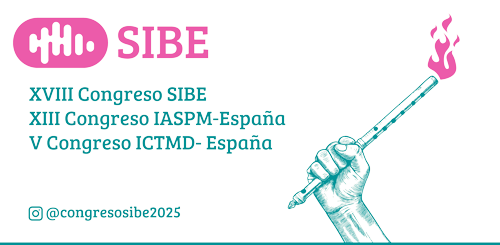This paper explores “traditional” music and dance expression in Galicia, along with contemporary conceptions of “authenticity” in current forms of musical transmission and practice. It examines how “traditional” culture is passed down through “formal” instruction in urban cultural centers and associations, particularly in Santiago de Compostela, and is enacted both in participatory music and dance gatherings, known as foliadas, as well as in staged folkloric performances. The study also considers the repertoires of this cultural knowledge, which are based in recollidas - the documentation of “informal” music, song and dance practices of os vellos (elderly generations) in rural communities. Given that os vellos represent the origin and revered repository of Galician music and dance expression in its “organic” and “informal” state, the present paper examines how younger generations involved in urban foliadas perceive the documentation, transmission and execution of these “authentic” expressions. The issue brings forth the ongoing debate between the dichotomies of rurality versus urbanity and informal versus formal cultural transmission. Drawing from ethnographic fieldwork and interviews with foliada participants in Santiago de Compostela, this paper explores both a pride in contemporary forms of cultural expression and a nostalgic yearning for how os vellos once played music and danced. Thus, this paper will discuss complex themes such as “tradition,” “contemporaneity,” “authenticity,” and the contradictory ideologies that surround them. It will also address inconsistencies between mourning the loss of “traditional” expressions of venerable vellos and the methods used today to “save” tradition. Ultimately, this paper aims to delve into the historical perceptions of “authenticity,” notions of musical mourning, and contemplate the contemporary practices surrounding the safeguarding of Galician music and dance.
Bibliographical References
BOHLMAN, Philip (2010), Focus: Music, Nationalism, and the Making of the New Europe (2nd ed.), Routledge https://doi.org/10.4324/9780203844496
CASTELO-BRANCO, Salwa El-Shawan (2010),“Música Tradicional”, Enciclopédia da Música em Portugal no Século XX. Lisboa: Círculo de Leitores, p. 887- 895
CASTELO-BRANCO, Salwa El-Shawan and Jorge Freitas Branco (2003), Vozes do Povo. A Folclorização em Portugal, Oeiras: Celta
COLMEIRO, José (2014), Bagpipes, Bouzoukis and Bodhráns: The Reinvention of Galician Folk Music, In H. Miguélez-Carballeira (Ed.), A Companion to Galician Culture (pp. 93-114), Boydell & Brewer
DE TORO, Xelís, (2002), “Bagpipes and Digital Music: the Remixing of Galician Identity,” In Constructing Identity in Contemporary Spain, Theoretical Debates and Cultural Practice, Ed. Jo Oxford: OUP, 2002 : 237-54
GELBART, Matthew (2007), The Invention of 'Folk Music' and 'Art Music': Emerging Categories from Ossian to Wagner (New Perspectives in Music History and Criticism), Cambridge: Cambridge University Press
HOBSBAWM, Eric and Terence Ranger (1983), The Invention of tradition. Cambridge [Cambridgeshire: Cambridge University Press.]
MIRAMONTES, Beatriz Busto (2012), “El poder en el folklore: los cuerpos en NO-DO (1943-1948)”, 16, 2-30
MIRAMONTES, Beatriz Busto (2016), La galicia proyectada por no-do. La arquitectura del estereotipo cultural a partir del uso del folclore musical (1943-1981)
REIMÓNDEZ, María (2014), “The Rural, Urban and Global Spaces of Galician Culture,” In H. Miguélez-Carballeira (Ed.), A Companion to Galician Culture (pp. 157-174), Boydell & Brewer

 PDF version
PDF version
